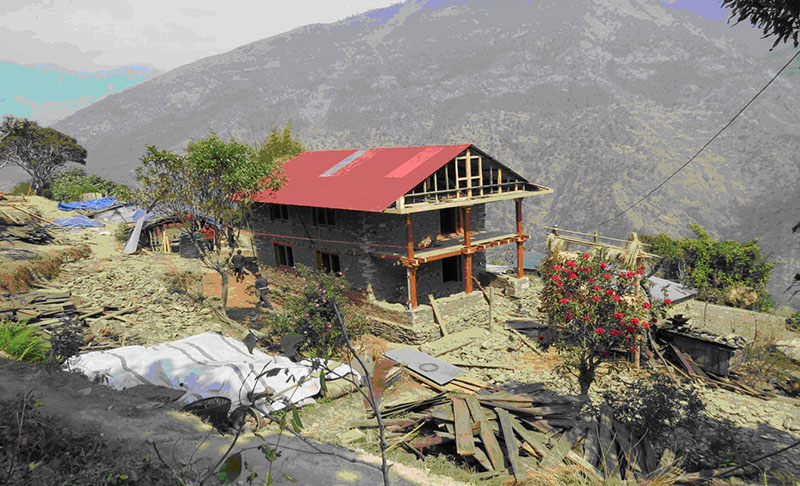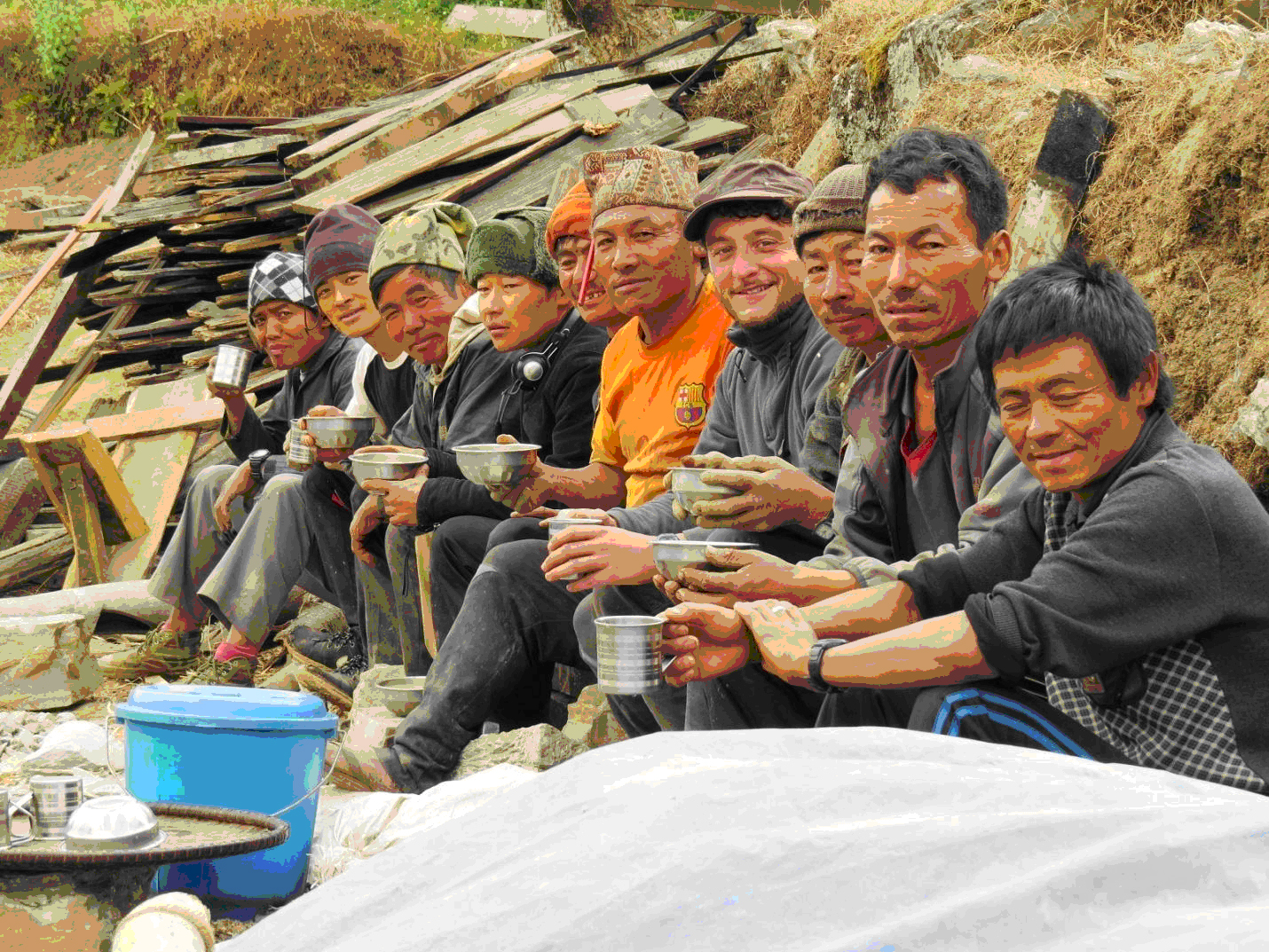Shokal’s house
Finally! The Shokal house is almost finished, as you can see from the photos taken at the beginning of March 2017. It’s a little bigger than expected, but this was a training site and it will be possible to adapt it to more modest structures.
After two and a half months in Nepal, Vincent, the young mason and rehabilitation expert who is overseeing the reconstruction for us, can be proud of his work.
Among the families selected for the first phase of work, we chose to start with the house of Shokal, a widower with two young children, because he had generously donated land for the construction of the dispensary.
Vincent’s mission has not been a smooth one, despite the quality of last October’s preparations. Problems with the supply of materials, which had been anticipated, delayed the site, and the treatment of the wood required the purchase of appropriate products. But the most acute problem was that of the labour: it had been agreed in October that the villagers would take on the work free of charge as a gesture of reciprocity and solidarity; however, many other work sites are underway in Rapcha and it is understandable that these paid sites are more attractive, especially for a non-collective construction project such as ours.
While expenditure on materials has remained in line with forecasts, the new factor of paying for labour will almost double the cost per house and will therefore affect our plans. However, the second phase remains scheduled for autumn 2017, i.e. 5 houses if the necessary materials have been collected and the workmen have made a firm commitment.
Our AGM next May and discussions with our Nepalese correspondents should enable us to overcome these difficulties; we will adjust the number and timing of the constructions to our resources.
It will also be necessary to reiterate to those responsible for the building work the importance of complying with earthquake-resistant recommendations for future rebuilds. These standards were difficult to apply during the construction of the Shokal house; however, they are at the heart of our project and motivated all our upstream work with the architects.
I don’t want to finish without publicly thanking Vincent Pena, who was constantly able to adapt to difficult and often unforeseen conditions. He was assisted from France by the young CAPA Association (Comprendre, Apprendre, Partager l’Architecture), which was created around the architects and engineers from Lyon with whom we worked on this project. Without his commitment (and he works for us on a voluntary basis) it would probably not have been possible to carry out this work; the challenge now is for the residents to take ownership of these reconstructions while respecting the specifications.
The General Meeting of our Association will take place on 13 and 14 May; you will be kept informed of our decisions in the short and medium term, but we will also have to reflect on the direction of our action in the long term, remaining faithful to the commitments on which our association is founded.
Bernard Simonet



